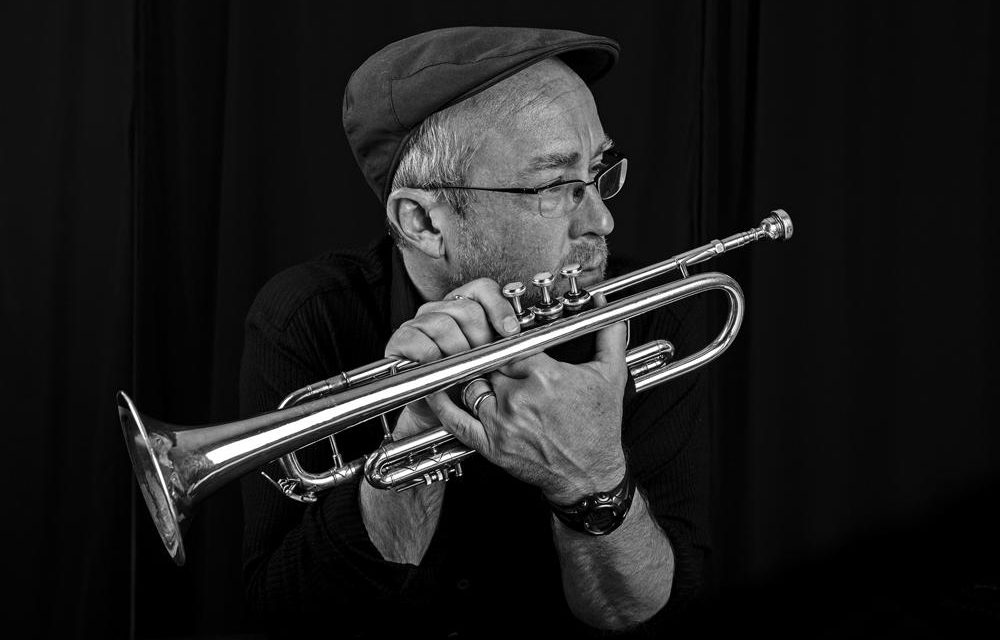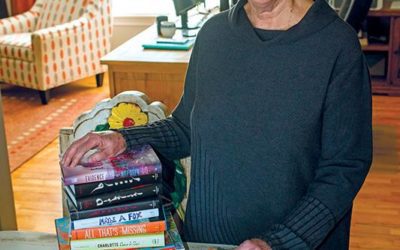Historians may quibble, but to me the history of the jazz trumpet began in 1924, when the young Louis Armstrong joined the famed Fletcher Henderson orchestra and switched from cornet to its bigger cousin. Armed with a sound that could carry better above larger musical groups in big halls, Armstrong further developed his technically brilliant and emotionally expressive style. That ringing, brassy tradition influenced subsequent generations of players, including Roy Eldridge and Dizzy Gillespie.
Dave Douglas, a trumpeter, composer, and festival organizer who delves into many musical traditions, has taken up the challenge that Armstrong created when he embraced the trumpet: to explore the sonic possibilities of the trumpet in full flight. Douglas is a modernist who explores the whole history of jazz but is also fascinated by many other folk traditions–including Jewish, Middle Eastern, and Balkan styles–favoring a big sound often tinged with vibrato that owes as much to brass bands as it does to Armstrong and his descendants. He has explored jazz history, recording tributes to earlier masters, but, unlike so many of his contemporaries, he never imitates and has an immediately identifiable characteristic style and sound.
Douglas came onto the scene at a time when many jazz musicians were looking backwards for inspiration, exhausted by the exuberance and radical experimentation that took place in the 1960s and 1970s. He was fortunate to fall into the orbit of the radical saxophonist and composer John Zorn, whose “radical Jewish music” redefined both jazz and klezmer. In 1993 the trumpeter became a permanent member of Masada, Zorn’s amazing quartet dedicated to keeping Jewish music alive by melding it with modern jazz. Assisted by the prominence gained from this association, he simultaneously began pursuing many different interests, the most important of which was his Tiny Bell Trio that delved into the complexities of Balkan rhythms, scales, and melodies. He also worked with other groups investigating many other traditions, from classic jazz to the songs of Kurt Weill and the classical modernism of Anton Webern. Eschewing standard jazz instrumentation, he utilized the sounds of string trios and accordions.
In the late 1990s and early 2000s, Douglas expanded his artistic endeavors, touring with various formations, continuing to develop his interests in Jewish and Balkan traditions, and creating a brass band, but also recording tributes to jazz figures such as pianist Mary Lou Williams and trumpeter Booker Little. He even worked with dance companies and developed music for old silent films.
Five years ago Douglas formed a quintet that showcases his own compositions, which bridge the history of jazz from a modernist perspective, with many surprises, such as gospel detours. The Dave Douglas Quintet plays the Kerrytown Concert House on Thursday, February 16.




